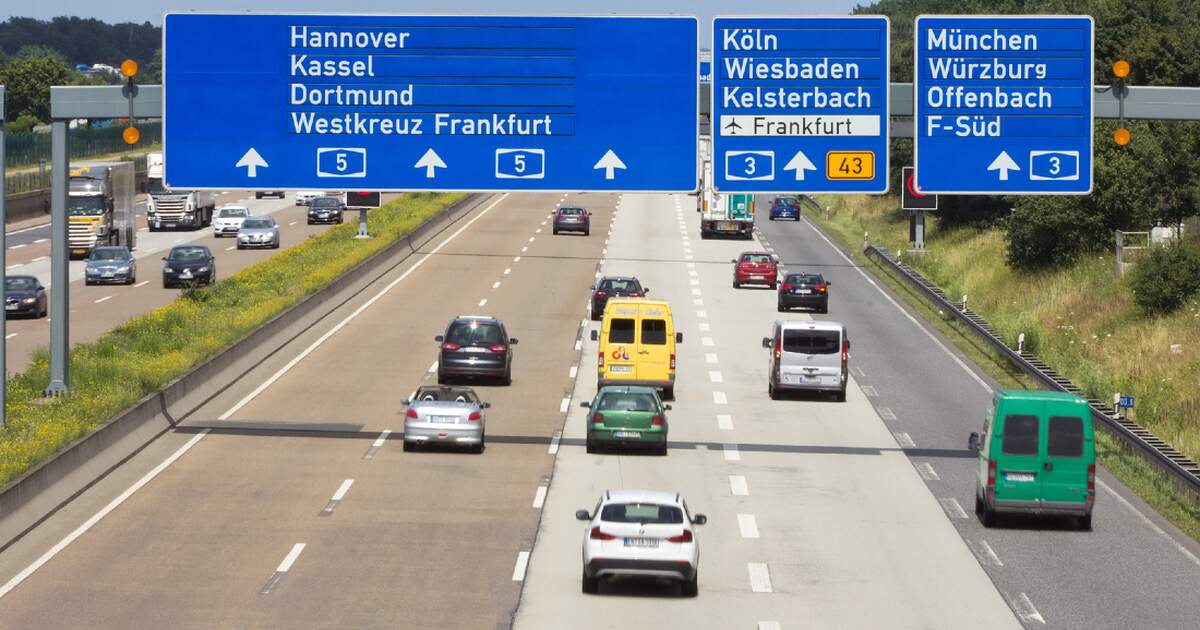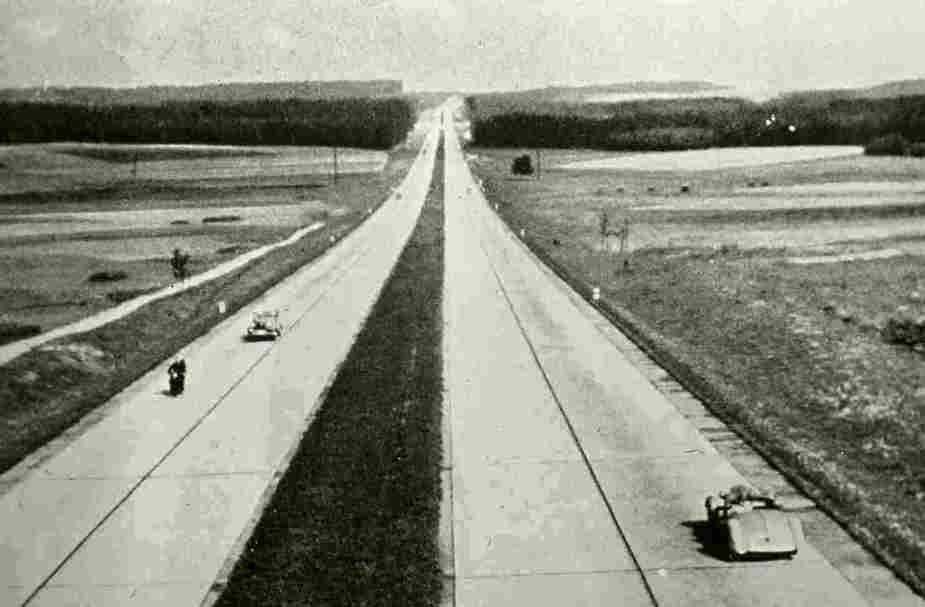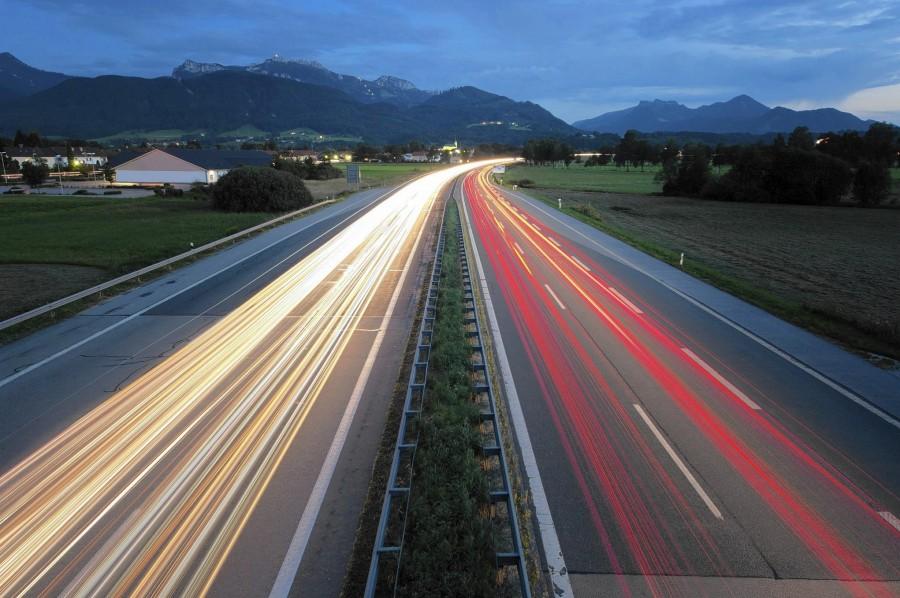The German autobahn Driving in Germany

Hitler's autobahn construction began in September 1933 under the direction of chief engineer Fritz Todt. The 14-mile expressway between Frankfurt and Darmstadt, which opened on May 19, 1935, was the first section completed under Hitler.
Autobahn history DW 08/04/2012

0:00 / 12:17 History of the Autobahn Christoph Puetz 97 subscribers 9.5K views 3 years ago While the German Autobahn is known for its no speed limits, there is also a lot of history behind.
Kommentar Geschwindigkeitsbegrenzung auf deutschen Autobahnen

Dec. 12, 2023, 11:26 PM ET (Yahoo News) Defect means LED street lights in St. Paul turning blue Autobahn, (German: "automobile road") high-speed, limited-access highway, the basis of the first modern national expressway system.
German Autobahn Celebrates 80th Birthday on August 6 News

First things first: the Nazis didn't invent the Autobahn. Instead, the idea of constructing motorways connecting Germany's expanding cities after World War I was conceived in the post-war Weimar.
The History of Autobahn The News Wheel

The Avus experimental highway in Berlin was built between 1913 and 1921, when Hitler was still dabbling as an unsuccessful still life painter. The Italians also set the pace by opening a section of.
Nationalism, Carbon Emissions & the Autobahn Viewpoint Vancouver

Brief History of Autobahn. The idea of a car-only road first originated in the mid-1920s in Germany. The primary reason was to build a network system that allows uninterrupted travel in the absence of pedestrians, bicycles, and animal transportation carriers. The idea was not executed until 1929, with the first autobahn opening between.
Pin on YESTERYEAR

In focus Israel at war Ukraine COP28 Autobahn history W. Dick / A. Lichtenberg / nh 08/04/2012 Many people still believe that the Nazis invented the famous German autobahn, and that the.
Bahnstorming The History of the Autobahn. ATE Australia

The Autobahn: Unraveling the Story of the World's First Superhighway By Carl Seaver Germany was the birthplace of the automobile. In 1889, Karl Benz invented the Motorwagen, the first practical gasoline-powered car. Well, practical is a bit of an overstatement.
Are the Autobahn's Speed LimitFree Days Nearing an End?
/__opt__aboutcom__coeus__resources__content_migration__mnn__images__2019__01__Autobahn_Germany_Primary-24c6aab8c51f4118bda8554f537bb75d.jpg)
The first public Autobahn, today called A555, was opened on 06 August 1932 by Konrad Adenauer (mayor of Cologne from 1917 to 1933). It connected the cities of Cologne and Bonn. The construction of the four-lane "highway without crossings" only lasted three years - an astonishingly short time.
How A Bankrupt Germany Solved Its Infrastructure Problems BSNEWS

History of the German Autobahn. The first German highway was constructed from 1913 to 1921 in South Berlin. Upon opening, the 19-kilometer road was considered the world's first cars-only highway. Another followed it in 1929, when a long stretch of highway between Düsseldorf and Opladen was completed.
The History of Autobahn The News Wheel

Early German Autobahn History The world's first limited-access highways—ones on which vehicles could only enter or exit at designated points—were built in New York in the early 1900s. In.
The German Autobahn, the world's first truly modern road network

Construction on the Autobahn began in 1913 and it was originally a speedway on the outskirts of Berlin. Shortly afterward, construction on the Autobahn ground to a halt as WW1 viciously and mercilessly swallowed half the world. It wasn't until 1921 that construction on the highway resumed.
A Quick History of Germany's Autobahns

The Autobahn ( IPA: [ˈaʊtoˌbaːn] ⓘ; German plural Autobahnen, pronounced [ˈaʊ̯toˌbaːnən] ⓘ) is the federal controlled-access highway system in Germany. The official German term is Bundesautobahn (abbreviated BAB ), which translates as 'federal motorway'. The literal meaning of the word Bundesautobahn is 'Federal Auto (mobile) Track'.
182 best AutobahnGermany images on Pinterest Germany, Deutsch and

The longest possible fast stretch of autobahn is between Hamburg and Berlin down the A 24 - 150 kilometres of road with no speed limit in sight. Maintaining the autobahn costs Germany 825.000 euros per mile each year. The biggest autobahn pileup in history occurred near Hamelerwald in 2009, and involved a whopping 259 cars!
259Car Autobahn PileUp Largest In German History

Where it All Began: Origin of the Autobahn On August 6, 1932, the first German automobile road was opened between Cologne and Bonn. The road was strictly for the use of cars and motorcycles, it had no cross streets and slower vehicles like horse-drawn carts were banned from using it.
History of the Autobahn

The Autobahn forms the basis of the first modern national expressway system. In 2022, it stretches for over 13,192 kilometers (8,197 miles), making it the third most extended system in the world.